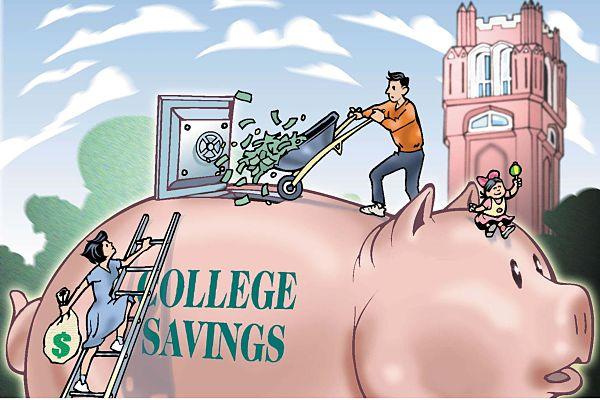With
the growing challenges in the corporate world, most countries around
the world are struggling to improve their economy. But can education
help a nation in improving its economic performance?
In
Asia, more than 50 per cent of the population still resides in
villages and rural areas. However, this number is
reducing....rapidly. Nowadays, most of the villagers, who are mostly
reliant on agriculture, are now moving into the bigger cities in
search of better opportunities. As a result many of the Asian
mega-cities like Manila and Mumbai have become overcrowded and
unsustainable. The rural migration rate is specifically high in China
where almost 100 cities have over 1 million people. In contrast, the
United Kingdom has only 2 overcrowded cities, Birmingham and London.
So what is the solution?
What
can be done to prevent these villagers from leaving the rural areas?
The answer is simple. We need to give them a worthwhile reason to
stay in their villages. The key question here is how?
One
of the most effective solutions is Rural Entrepreneurship, a theme
which has gained prominence in the Purpose Economy Asia 100 prepared
by Imperative, an US-based career consultancy.
Money comes first
Most
business leaders and experts know that you need to money in order to
make money. Currently Micro-Finance is the most suitable option which
can enable the rural residents to start their own local business
ventures. Micro- Finance, primarily Asian in origin, was propagated
initially in Bangladesh by Muhammad Yunus, a Nobel Prize winner.
Later it became popular in India and other developing economies.
Chetna
Sinha, Founder of the co-operative bank Mann Deshi Mahila Bank in
Maharashtra, India, says, “If people aren't able to access a
micro-finance loan, then they will go to loan sharks”. Sinha, who
was titled India's Social Entrepreneur of the Year by the Schwab
Foundation recently, confirms that usually unlicensed moneylenders
tend to charge high compound interest rates which can range from 20
per cent to 120 per cent.
However,
Micro- Finance is not the sole option for these villagers as there
are several other innovative loan options available for them. Mann
Deshi Mahila Bank also provides specifically designed insurance
products, pension services, individualised loans and savings accounts
to their rural clients. Meanwhile in Myanmar, a social enterprise
named Proximity Designs offers farm finance packages which gives
loans for the planting and growing season. Moreover, the payments can
also be delayed until the harvest.
Even
though there are many rural finance options available now, but the
fact remains that the loan amounts are usually very small and the
interest rates are rather high for the villagers. Hence it becomes a
daunting task for them to create a satisfactory credit score and be
eligible for bigger sums.
Is Finance enough for successful Rural Entrepreneurship?
No.
Actually it’s far from being enough. The main challenge lies
elsewhere. Most of the time aspiring entrepreneurs in rural regions
feel handicapped by their lack of relevant business knowledge,
skills, entrepreneurial motivation, market awareness, and leadership
& communication skills.
The
factor which needs the most focus here is developing adequate
entrepreneurial motivation and drive. The General Secretary of Sri
Lanka's Sarvodaya Shramadana Movement, Vinya Ariyaratne, says, “You
need to change the mindset of people. That is, (teaching them) that
they can do things on their own without relying on external resources
to come to the village, in particular the government”.
Sarvodaya
works with about 15,000 villages and helps the residents to start new
business ventures by providing training, collective thinking and
dialogue and establishing community institutes. Vinya Ariyaratne, who
was also chosen for the Schwab Foundation's award, says, “Other
organisations see poverty basically as a problem with income and
straight away start microfinance and so on. But we believe
development needs to encompass … spiritual, moral and cultural
development too”.
What can be else done provide necessary training to rural residents on a large scale?
How
can the potential entrepreneurs in villages across Asia learn about
business without feeling any financial burden? The solution is right
in front of us...Online Education. Earning a business diploma study online can help the villagers
prepare for Rural Entrepreneurship.
However,
it would firstly require the respective governments to greatly
enhance the existing infrastructure in the villages, so that they can
access the internet. But the good news is many villages across the
continent already have internet accessibility. Hence online diploma
programmes like MOOCs (Massive Open Online Courses) can help them to
learn relevant skills and gain business knowledge that will enable
them to start their own business ventures. This would in turn improve
the overall economy of the region and add to the national economy as
well.
As
a nation’s economy largely depends on different industries that
have varied effects in the global market, the education level of the
citizens, both urban and rural, greatly contributes towards its
economic performance. Thus developing countries need to focus on
improving the education system, both online and on-campus, so that
more entrepreneurs and skilled workers can be created to support
various industries. Moreover, the principle that every individual has
a right to education has given rise to a movement for improvement of
education.
By
providing higher education opportunities to the rural population
through online learning modes, we can enable them to be
self-sufficient and contribute to their local economy. This will
certainly prove to be an effective measure in persuading the
villagers to remain and prosper in their own villages.


























